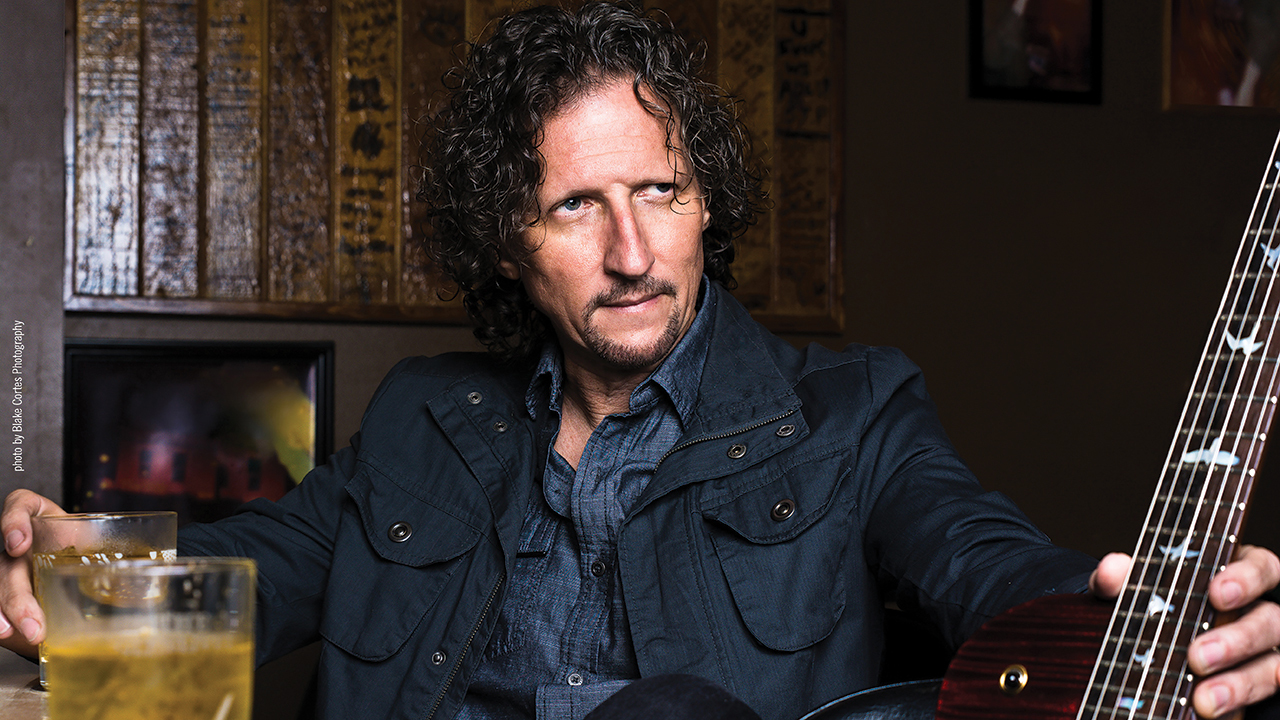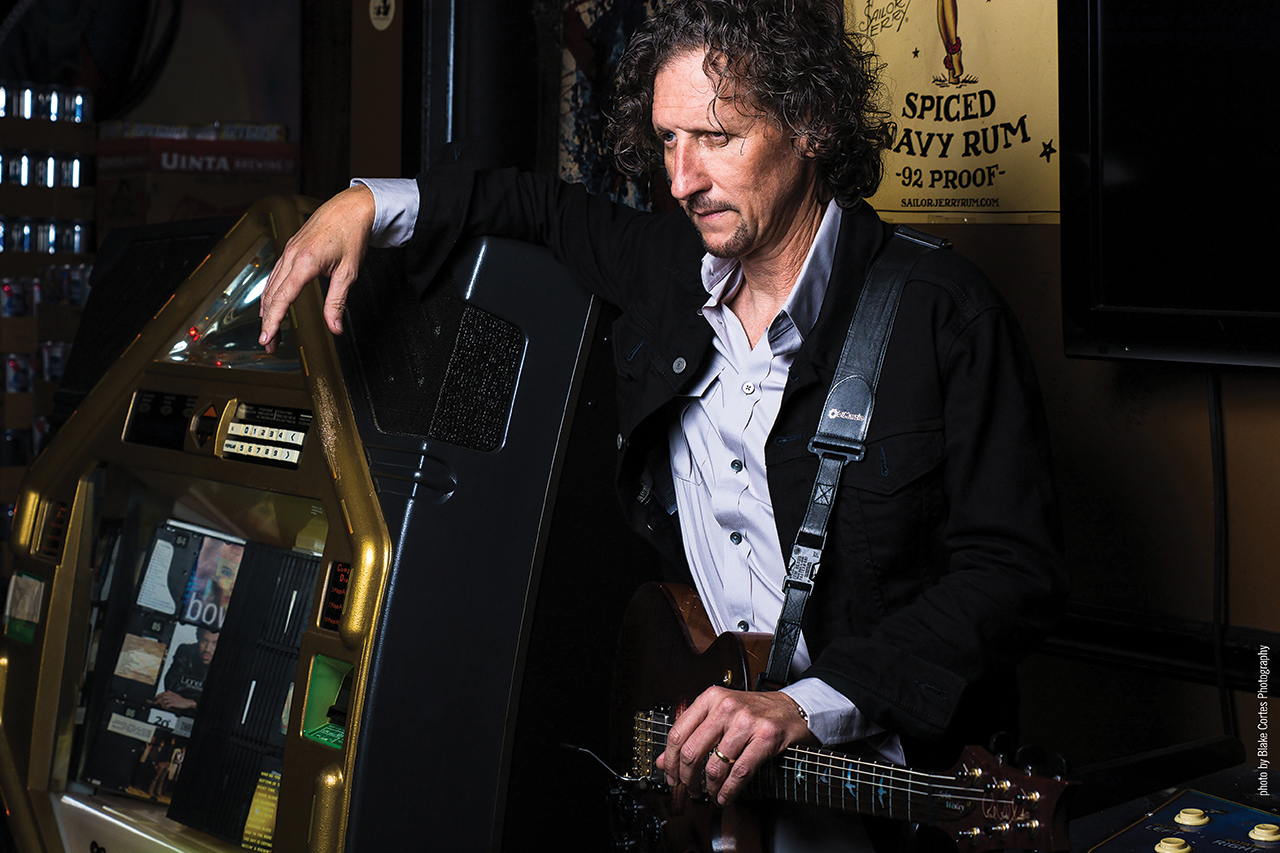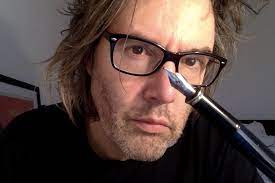John Wesley: "There’s heartbreak in my material – I had a lot to work with"
With a title inspired by one of the greatest and most troubled writers of the 20th century, John Wesley’s latest album tells a story of troubled times and lessons learned

‘These were new dead and no one had bothered with anything but their pockets. Our own dead, or what he thought of, still, as our own dead, were surprisingly few, Nick noticed. Their coats had been opened too and their pockets were out, and they showed, by their positions, the manner and the skill of the attack. The hot weather had swollen them all alike regardless of nationality.’
A Way You’ll Never Be – Ernest Hemingway
A Hemingway story that was one of the first pieces of fiction to address combat-related, post-traumatic stress disorder. An album cover that depicts an (apparently) agonised figure engulfed in flames. Before you even get to the music, John Wesley’s latest album already seems a much tougher proposition than the work he’s done previously. Themes of solitude, heartbreak, anger and disappointment ripple through the record, though it’s not without hope and, finally, a little redemption. Which begs the question: where is John Wesley right now?
Happy in himself, as it turns out. It’s 9:30am when he picks up the phone, the sun’s low but still shining over Tampa, the place he calls home. Wesley, at 54, has a four-year-old son (“A lot of Dr Seuss at the moment,” he chuckles when Prog asks him what he’s currently reading), as well as a 28-year-old daughter, plus two grandsons who are six and four years old respectively. Wesley came up the hard way: he was divorced at 26, raising his then five-year-old daughter while trying to keep his musical career on an even keel.
“A lot of people have said to me, ‘There’s so much heartbreak in your material.’ I had a lot to work with…”
And while his latest record may be named after a short story by Hemingway, that’s just the beginning for an album that, if not quite a concept record, charts a period in Wesley’s life that saw him reflecting back on mistakes made and lessons learned. It begins with By The Light Of The Sun and ends with Pointless Endeavors and a conclusion where the singer and songwriter has “shed a lot of dead skin. I know that sounds far out, but this whole process was a shedding of dead skin”.
But, firstly, back to Hemingway.
Sign up below to get the latest from Metal Hammer, plus exclusive special offers, direct to your inbox!
“I really connected with his writing when I’d spend a month at a time gigging in Key West when I was younger and his house is right down there and his pictures are everywhere – you can’t go into a bar there and not see a photo of him,” says Wesley. “And the album’s named after that short story. This soldier’s wounded and he’s being picked on by these other soldiers until an officer who’s seen him in action actually says to these guys, ‘He’s a way you’ll never be.’ It’s implied that here’s a hero who has seen and done things you’ll never do.
- John Wesley To Support Marillion
- John Wesley - a way you’ll never be album review
- Prog Me: John Wesley
- John Wesley launches To Outrun The Light lyric video
“I’ve seen that so much in our current society. We’re so quick to criticise, to challenge someone’s valour, whether it be military or just life in general. We don’t know those everyday struggles, so that’s the crux of it and I expanded from there. There are other Hemingway stories too that set off ideas during the record; ideas and concepts.”
The heart-rending The Silence In Coffee, which sounds like a short story in its own right, was inspired by Hemingway’s forlorn Mr And Mrs Elliot: “The lines between the two characters triggered something in me, then the story came out of personal experience. I guess you get that.”
What about that album cover, the figure in the half light, the flames wrapping around their body and rising violently into the air? It’s another aspect of the album’s loose concept, another facet of the story Wesley’s telling.
“That spoke to me on a number of levels. You know, you look at something you know nothing about and they could be on fire in their lives in an accomplished and exciting way,” he says, “or burning up on the inside in the worst way, and that informs the way they deal with you if you never take the time to understand them. That’s all in there for me.”
As profound and expressive as his solo work is, John Wesley has suffered, in some quarters, for the sterling work he did as the sideman and co-writer with artists like Porcupine Tree, Fish and Bigelf. It’s almost as if the success he had there hasn’t allowed him to move on, not least when people like Prog are still asking him about it, which elicits a good-natured laugh.

“It’s hard to escape that shadow when people who aren’t very open-minded peg you as that is all you will ever be or were. They don’t realise I was writing albums before I ever took a gig as a sideman. That came along because I needed the cash, plus those are times that I loved. To play for someone like Fish… what an adventure that was.”
This album hasn’t just helped Wesley come to terms with his past, it’s also helped him address his two musically stylistic sides: the singer/songwriter and the guitarist letting rip with his Marshall stack.
“That’s so true. I started out trying to figure out songs by Yes and Genesis and AC/DC,” he says. “Then I found this black 8-track tape at the side of the road, and I played it for months before I knew it was Bridge Over Troubled Water, so Simon And Garfunkel opened up that side of me, the literary side of my mind, and it’s taken me until this album to reconcile those two things.
“The album begins with another nod to Hemingway’s The Sun Also Rises, with By The Light Of The Sun. That’s hope, and then there’s the journey, and I’ve chased a lot of pointless endeavours in my life, which is where we end up. When I say go home, it means come back to yourself, back to what you love and I did that as an artist on this album. That end section, I’m talking to myself, but I’m hoping other people will connect with that too.”
There’s a pause. “The album is really a distillation of all the things I had to work out. This feels like the start of something new.”
Philip Wilding is a novelist, journalist, scriptwriter, biographer and radio producer. As a young journalist he criss-crossed most of the United States with bands like Motley Crue, Kiss and Poison (think the Almost Famous movie but with more hairspray). More latterly, he’s sat down to chat with bands like the slightly more erudite Manic Street Preachers, Afghan Whigs, Rush and Marillion.

